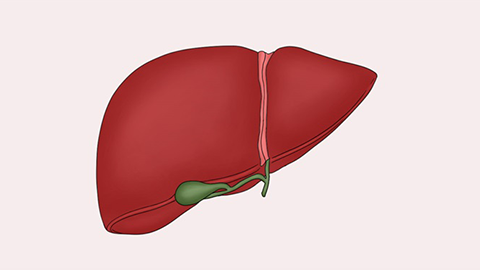What causes elevated total bilirubin levels?
Generally, elevated total bilirubin levels may be caused by neonatal physiological jaundice, unhealthy lifestyle habits, hemolytic anemia, hepatitis, gallstones, and other factors. Symptomatic management through general treatments or medication might be necessary. If discomfort occurs, it is recommended to seek timely diagnosis and treatment at a hospital. Detailed explanations are as follows:

1. Neonatal Physiological Jaundice
After birth, due to the weak metabolism, poor liver function, short lifespan, and easy destruction of red blood cells in newborns, more bilirubin is produced, leading to elevated total bilirubin levels and physiological jaundice. This is usually considered a normal phenomenon and generally does not require special treatment, as it resolves spontaneously within a short period.
2. Unhealthy Lifestyle Habits
Prolonged or excessive alcohol consumption, staying up late, intense exercise, and other unhealthy lifestyle habits can potentially damage the liver, thereby affecting bilirubin metabolism and excretion, leading to elevated total bilirubin levels. This may usually be accompanied by symptoms such as lethargy, difficulty concentrating, and fatigue. It is recommended to quit unhealthy drinking habits, maintain regular作息 patterns, and avoid intense physical activity.
3. Hemolytic Anemia
Hemolytic anemia mainly results from abnormalities within red blood cells or external factors affecting them. In such cases, red blood cells are destroyed, and hemoglobin is converted into bilirubin. When this exceeds the liver's processing capacity, unconjugated bilirubin accumulates in the blood, causing elevated total bilirubin levels. Symptoms usually include jaundice, darker urine, fatigue, and others. It is recommended to follow medical advice to use medications such as azathioprine tablets, prednisone acetate tablets, and dexamethasone acetate tablets to alleviate symptoms.
4. Hepatitis
Hepatitis may be caused by infections such as viruses or bacteria. During acute or chronic hepatitis, damaged liver cells reduce the ability to process bilirubin, resulting in elevated total bilirubin levels. Symptoms may include fatigue, loss of appetite, nausea, and others. It is recommended to undergo treatment under medical guidance using medications such as azathioprine tablets, bicyclol tablets, and recombinant human interferon α2b injection.
5. Gallstones
Bacterial infection, reduced gallbladder contraction function, and other factors may lead to gallstone formation. Gallstones can obstruct bile excretion, causing conjugated bilirubin to flow back into the bloodstream, elevating total bilirubin levels. Patients typically experience symptoms such as jaundice, abdominal pain, fever, and others. It is recommended to undergo treatment under medical guidance using medications such as ursodeoxycholic acid tablets, anti-inflammatory and bile-promoting tablets, and Danchang capsules.
It is recommended to consume more fresh fruits and vegetables, such as oranges and broccoli, in daily life, which helps supplement vitamins and enhance liver metabolic function.





